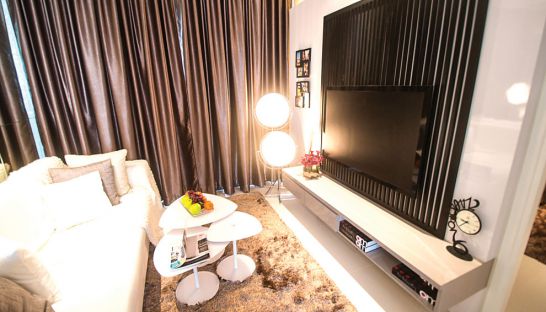Expats fuel growth in the sector with more demand expected as next year’s Asean Economic integration approaches
Phnom Penh’s graded serviced apartment sector is booming and shows no sign of slowing down, according to a report by a real estate firm released this week.
VTrust Property surveyed the number of apartments and units, occupancy rates, and growth in the sector and found a 3 per cent rise in the supply of serviced apartments in the first half of the year. It also predicted that demand would increase as the planned 2015 ASEAN Economic Community integration fostered cross-border exchange of professionals.
“The demand will increase, because ... a lot of people will be flocking from one country to another for work, because we will have that freedom,” said Chrek Soknim, deputy director of VTrust Property.
The ASEAN integreation would have a significant effect on Phnom Penh’s housing market because of the Kingdom’s shortage of skilled workers, he said.
“In Cambodia, knowledge is limited at the moment, so it is a good market for foreigners to come.”
But the anticipated influx is likely to be further off, according to Jayant Menon, an economist at the ADB’s office of regional integration in Manila.
“There will be an influx of highly skilled workers, but it’s not going to be driven by the 2015 ASEAN economic community deadline,” said Menon, adding that 2025 would be a more realistic timeframe.
According to VTrust’s report, 47 per cent of Phnom Penh’s graded service apartments were built in the past three years. It estimates there are about 180 such apartment buildings with around 3,500 units.
Some 47,000 to 50,000 expatriates lived in Phnom Penh, said Soknim, with many of them living in serviced apartments.

For rent: an apartment block in Boeung Keng Kang. Pha Lina
Graded serviced apartments are defined as flats with additional services included in the contract, such as 24-hour security, parking, cleaning, internet and laundry.
The lowest end one-bedroom serviced apartment cost $250 a month while the most expensive full-service penthouse was $7,000 a month. The average price for a two-bedroom apartment, which represents the largest market share at 50 per cent, was $1,020 a month.
The report also said there were 194 nonserviced apartments, mostly family owned, which catered to lower-income expatriates and some locals.
The occupancy rate for all apartments was 84 per cent in the first half of 2014 and supply is expected to increase, said Soknim.
“The number of apartments under construction is up a lot, so there will be more supply in the next three years,” he said.
Asian expatriates are the most likely tenants of serviced apartments, and while the report did not keep track of the specific nationalities, Soknim said they came primarily from Vietnam, Japan, South Korea and Taiwan.
Western expatriates, largely from the US, UK and France, make up 47 per per cent while Africans (excluding South Africans) form just 1 per cent.

The interior of De Castle serviced apartments. CHRIS TAYLOR
The transient nature of the expat tenants is reflected in the lease agreements – 63 per cent opt for six-month leases, according to the report, while only 30 per cent sign one-year contracts.
Soknim said that Cambodians, who comprise just 2 per cent of tenants, largely avoided serviced apartments for both economic and cultural reasons.
Since Cambodian nationals could easily buy property and generally had no plans to move out of the country, those who could afford to do so tended to buy their own homes.
“[Cambodians] mostly like to live on the ground floor, and the old generation would like to live together,” said Soknim. He presumed that young Cambodians who had lived abroad were more likely to want a serviced apartment, but even that demographic was more likely to invest in a condominium.
“Mostly, they stay with the condos, because apartments you can’t buy for individual use,” he said.
VTrust conducted the survey by sending individuals to visit 180 apartment buildings to collect raw data from the landlords. Surveyed districts included Chamkarmon, Chroy Changvar, Daun Penh, Prampi Makara, Russei Keo and Tuol Kork. Soknim estimates “99 per cent” of the city’s market was included.
What was lacking in the capital’s apartment sector, said Soknim, was the presence of property management companies.
According to the report, 92 per cent of both serviced and nonserviced apartments relied on in-house property management to handle daily operations of the properties, marketing duties and liaising with tenants.
Soknim said: “That was the most important thing I was wondering about – it is a good opportunity for the property management companies, because this is quite a new sector in Cambodia.”
Source: Phnom Penh Post

